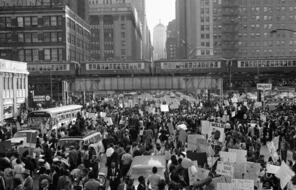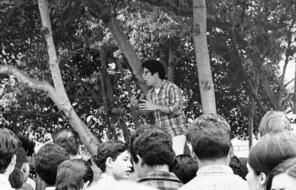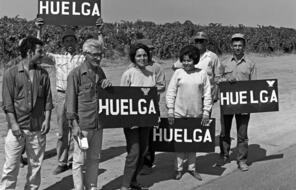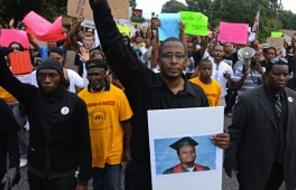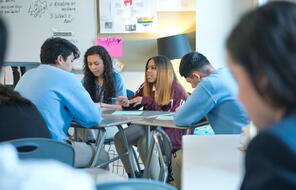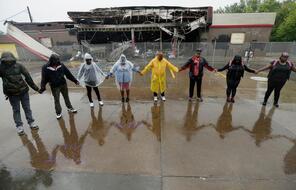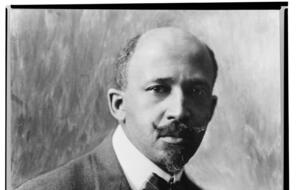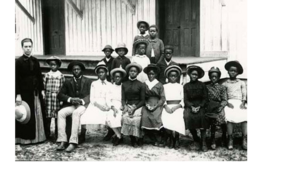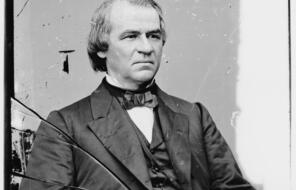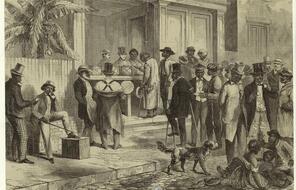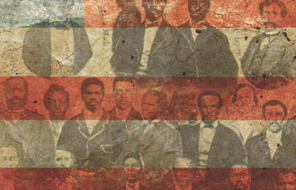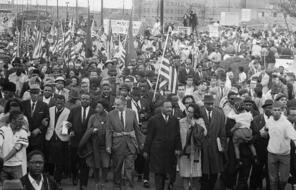The Birthday Party: Outside the Magic Circle by Virginia Foster Durr
At a Glance
Language
English — USSubject
- History
- Racism
Please note that this reading contains dehumanizing language. We have chosen to include it in order to honestly communicate the harmful language of the time; however, dehumanizing language should not be spoken or read aloud during class.
We recommend that teachers review Strategies for Addressing Racist and Dehumanizing Language in Literature before using this material.
This excerpt appears as Handout 3.4 on page 82 of Teaching Mockingbird.
In her autobiography, Outside the Magic Circle, white Southerner Virginia Foster Durr recalls how the customs of the Jim Crow South affected her seventh birthday party:
During the summer of Aunt May’s visit, she heard the little black children in the backyard calling my sister “Sis.” My brother called her Sis, and I called her Sister. Well, Aunt May sent Grandmother’s house servant, Easter, out to tell the little black children they couldn’t call Josephine Sis. They had to call her Miss Josephine. We were astonished and hurt and didn’t know what this was about. Here Sister, who had been playing with the black children all her life, had to be called Miss Josephine all of a sudden. But Sister solved the problem by telling them, “Now, you don’t have to call me Miss Josephine; you just call me Miss Sis.” So after that all the children, white and black, called her Miss Sis. She solved the problem by not hurting anybody’s feelings. She spent her life doing that.
That incident was a warning that our idyllic days were over, but the great trauma of my early life came with my seventh birthday. I had always celebrated my birthday in Union Springs because it was in August. We would have a barbecue in the backyard with the black children. We would dig a pit in the backyard, which was sandy, and place a grill over the hole and build a fire. Then the cook would give us chickens, which we were allowed to baste and turn. Of course, by the time we got through, the chickens were full of sand, but to me this was a great event. Here I was presiding over the chickens! But on my seventh birthday my mother and grandmother and aunts all said I had to have my birthday in the front yard and have just white children. No black children could come to the party. Well, I got very angry about that. Mostly, I wanted the barbecue. I was thinking of food, as usual.
I had been planning the party for months. I’d had typhoid fever and had spent the whole time that I was ill planning my birthday party. I was going to have a pink cake and pink slippers and pink socks and a pink dress and a pink sash and a pink bow in my hair and a pink cake and strawberry ice cream. When August arrived, I had a pink dress, the pink socks, the pink everything, except the strawberries, which weren’t available in August, but I was told none of the black children could come to the party. Only white children—perfect strangers they had picked up in Union Springs. So I had a temper fit early that morning and they finally agreed that I could have the barbecue in the morning and the party in the afternoon. The barbecue would be in the backyard with the black children, and the party would be in the front yard with the white children.
Elizabeth, Aunt May’s daughter, was there. Aunt May had brought a French maid with her to Union Springs, too, if you can imagine. Aunt May really put on airs. Elizabeth was always dressed up in beautiful dresses with sashes and everything matching and her hair curled. She was a little older than I was, about my sister’s age.
We had the birthday barbecue and everything was going fine. One of the little black girls was tearing up the chicken, and she offered a piece to Elizabeth. Elizabeth, who must have felt like an outcast in this group, all of a sudden said, “Don’t you give me any chicken out of that black hand of yours. I’m not going to eat any chicken that your black hand has touched, you little nigger.” 1 I told Elizabeth to go to hell. I was just furious. You see, the black girl was Nursie’s little girl, Sarah. She and I played together all the time. I was raised with her. The grown-ups put me to bed and said I was going to hell for being so bad.
When the afternoon came, I went to the birthday party with all these strange white children. I had another temper fit and screamed and yelled. I bashed the cake in and was put to bed again. By that time, the seventh birthday was pretty well shot, cake and all. That night at the supper table, my aunt said I was the worst child she had ever known. She told my mother, “I really think you have got to do something about her because she’s so high-tempered, such a bad child.” I was sitting right there listening to her, so I took a knife and threw it at her. Well, I was really a disgrace then, so they sent me away from the table. I went out to the back porch and sat in Nursie’s lap. We could hear Aunt May through the window saying, “Annie, the trouble with Virginia is that nurse. She spoils her to death. And besides, I think it’s terrible that you let her sit in her lap and sleep with her and kiss her and hug her. You know all those black women are diseased.”
My mother defended me, but she did not try to defend her nurse, and neither did my grandmother. Nursie had been spending the summer in Union Springs all my life. She had been with our family for seven years, caring for me and my brother and my sister. They knew how kind she had been to us and what a faithful servant she was. Yet they did not defend her from Aunt May’s charges. Of course, it was venereal disease that Aunt May was talking about, but I didn’t know that at the time.
Nursie was a dignified woman and she was, I am sure, highly insulted. She put me to bed that night and the next morning she was gone. She took her child and left and never came back. She got a job somewhere in the neighborhood in Birmingham, and I would go and cry and beg her to come back, but she never would. She never forgave the insult. That was a terrible trauma in my life. 2
- 1We have chosen to include this word in order to honestly communicate the harshness of the bigoted language. We recommend that teachers review “Discussing Sensitive Topics in the Classroom” on page XV before using this document in class.
- 2Hollinger F. Barnard, ed., Outside the Magic Circle: The Autobiography of Virginia Foster Durr (Tuscaloosa: University of Alabama Press, 1985), 16–17.
How to Cite This Reading
Facing History & Ourselves, “The Birthday Party: Outside the Magic Circle by Virginia Foster Durr,” last updated March 14, 2016.
This reading contains text not authored by Facing History & Ourselves. See footnotes for source information.

